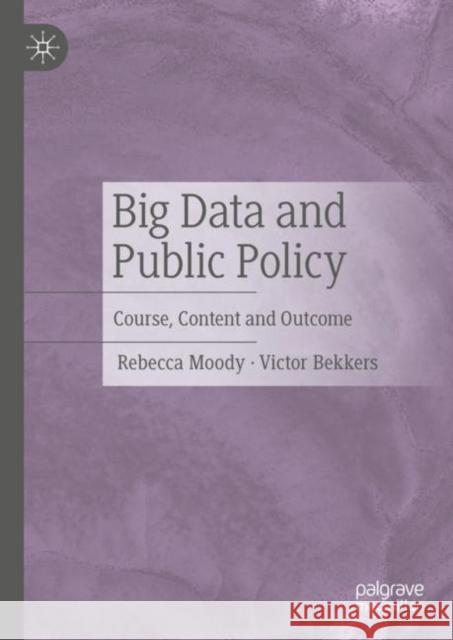Big Data and Public Policy: Course, Content and Outcome » książka
Big Data and Public Policy: Course, Content and Outcome
ISBN-13: 9783031160301 / Angielski / Twarda / 2023 / 211 str.
Big Data and Public Policy: Course, Content and Outcome
ISBN-13: 9783031160301 / Angielski / Twarda / 2023 / 211 str.
(netto: 536,72 VAT: 5%)
Najniższa cena z 30 dni: 501,19
ok. 16-18 dni roboczych.
Darmowa dostawa!
This book provides a comprehensive overview of how the course, content and outcome of policy making is affected by big data. It scrutinises the notion that big and open data makes policymaking a more rational process, in which policy makers are able to predict, assess and evaluate societal problems. It also examines how policy makers deal with big data, the problems and limitations they face, and how big data shapes policymaking on the ground. The book considers big data from various perspectives, not just the political, but also the technological, legal, institutional and ethical dimensions. The potential of big data use in the public sector is also assessed, as well as the risks and dangers this might pose. Through several extended case studies, it demonstrates the dynamics of big data and public policy. Offering a holistic approach to the study of big data, this book will appeal to students and scholars of public policy, public administration and data science, as well as those interested in governance and politics.
This book provides a comprehensive overview of how the course, content and outcome of policy making is affected by big data. It scrutinises the notion that big and open data makes policymaking a more rational process, in which policy makers are able to predict, assess and evaluate societal problems. It also examines how policy makers deal with big data, the problems and limitations they face, and how big data shapes policymaking on the ground. The book considers big data from various perspectives, not just the political, but also the technological, legal, institutional and ethical dimensions. The potential of big data use in the public sector is also assessed, as well as the risks and dangers this might pose. Through several extended case studies, it demonstrates the dynamics of big data and public policy. Offering a holistic approach to the study of big data, this book will appeal to students and scholars of public policy, public administration and data science, as well as those interested in governance and politics.











